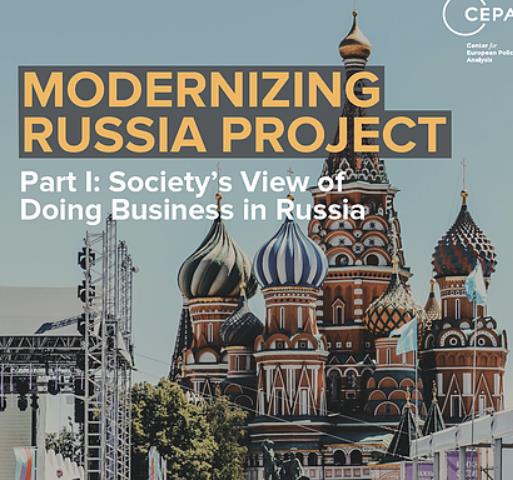(CEPA & Levada Center) Over the last decade, the Kremlin’s policies have consistently traded Russia’s economic development for Russia’s great-power status. As result, Russia has experienced a significant economic slowdown. Recent efforts to extend President Vladimir Putin’s 20-year presidency enable Moscow to sustain these policies. But are they feasible in the long term? Few in-depth empirical studies have attempted to answer this question.
To do so, CEPA and the Levada Center ran a series of surveys in Russia in 2019 designed to explore the modernizing trends within its society. They assess the growing bottom-up support for policy change among Russians and the corresponding policy ramifications for Russia’s future and U.S. foreign policy. They focus on policy preferences of Russians towards entrepreneurial activity and rule of law, as well as the civic activism of the Russian youth — three areas where growing demand for policy change could challenge Russia’s existing authoritarian political system. Co-authored by Denis Volkov, Stepan Goncharov, and Maria Snegovaya, the three-part “Modernizing Russia Project” contributes exciting new data and analysis that will deepen understanding of the changing preferences of Russia’s population among the U.S. academic and policy communities.
Read More © Center for European Policy Analysis (CEPA)











